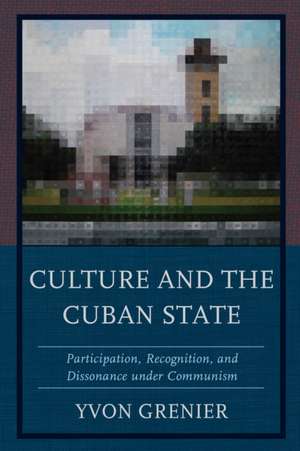Culture and the Cuban State
Autor Yvon Grenieren Limba Engleză Hardback – 12 oct 2017
Preț: 775.77 lei
Preț vechi: 1062.71 lei
-27% Nou
Puncte Express: 1164
Preț estimativ în valută:
148.47€ • 153.82$ • 123.90£
148.47€ • 153.82$ • 123.90£
Carte tipărită la comandă
Livrare economică 21 martie-04 aprilie
Preluare comenzi: 021 569.72.76
Specificații
ISBN-13: 9781498522236
ISBN-10: 1498522238
Pagini: 340
Dimensiuni: 152 x 229 x 27 mm
Greutate: 0.58 kg
Editura: Rowman & Littlefield
ISBN-10: 1498522238
Pagini: 340
Dimensiuni: 152 x 229 x 27 mm
Greutate: 0.58 kg
Editura: Rowman & Littlefield
Notă biografică
Descriere
This book examines the evolution of cultural policy in Cuba since the 1959 revolution, the connection between cultural policy and political development, and the extent to which cultural actors are agents for change for the reproduction of dominant values and institutions.
